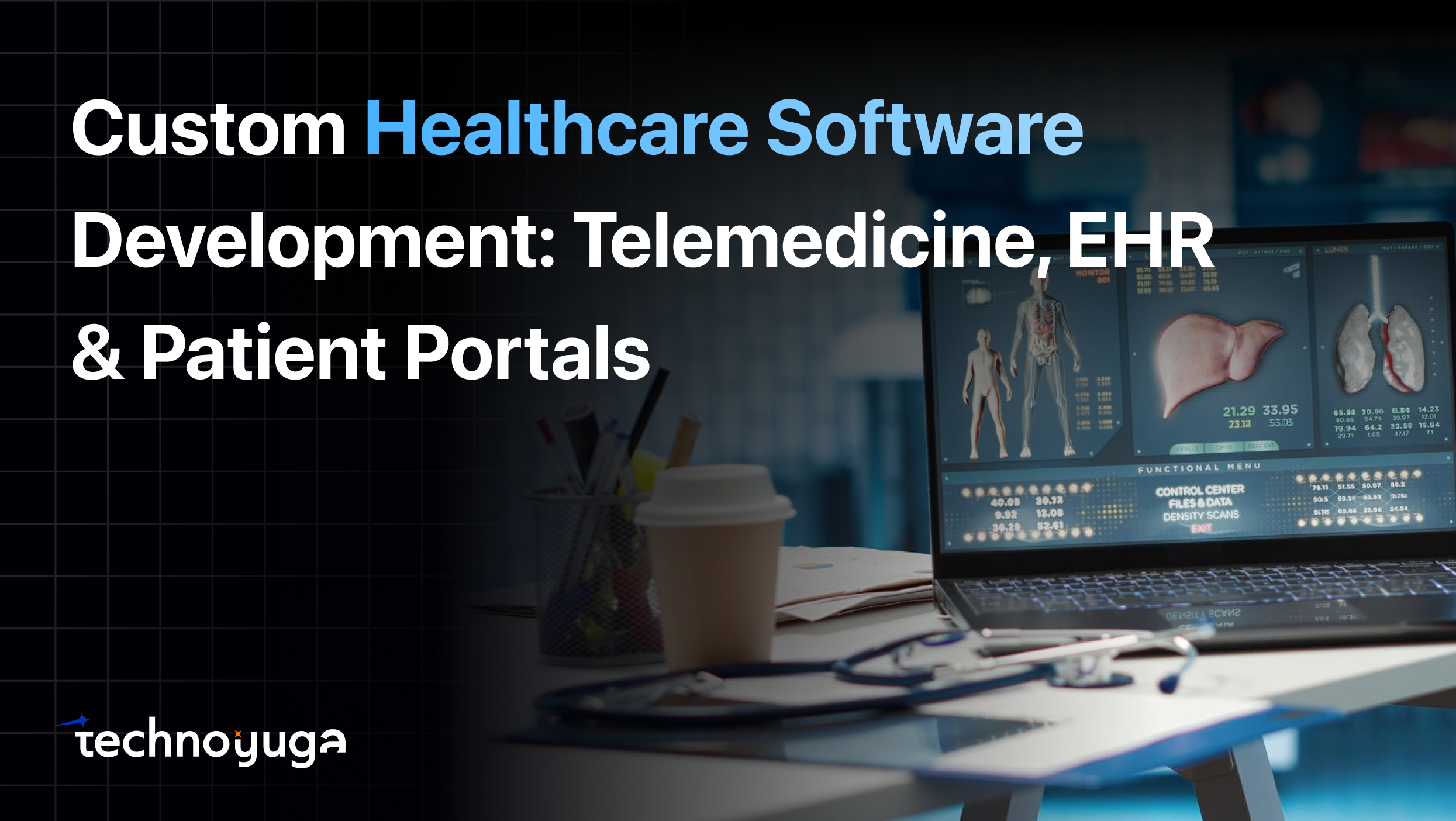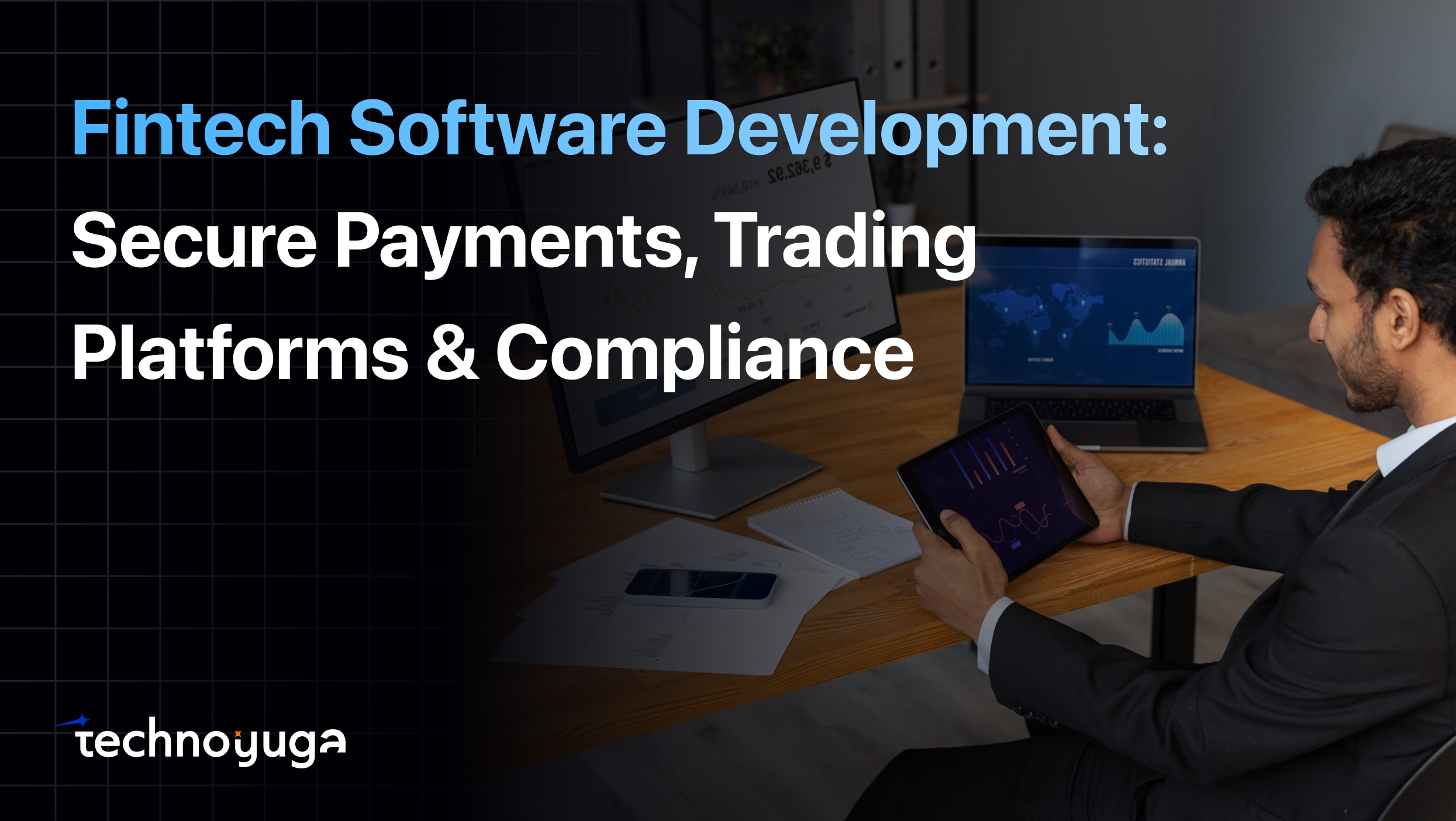The healthcare industry has always been productive with no slumps facing it so far. This is because simple mobile apps that have many features are being developed instead of using manual methods in healthcare organizations due to increase in security and data fears. Be it a hospital owner, a medical practitioner or an entrepreneur interested in venturing into the health sector, healthcare application development is the answer.
It is anticipated that the worldwide healthcare app market would expand between 2021 and 2030 with an estimated Compound Annual Growth Rate (CAGR) of 40.2%, a level that will see it hit a net worth of at least USD 861.40 billion by the end of the same period. Likewise, only by 2030, the telemedicine sector is supposed to reach USD 286.22 billion. Further projections indicate that by 2030, the artificial intelligence global share within the healthcare industry would heighten using a CAGR/Compound Annual Growth Rate of 37% from 2022 above USD 187.95 billion.
You can build a healthcare app that meets the demands of patients, medical practitioners and healthcare setups. You can also customize your product to meet your specific company needs but that includes the cost factor. In this blog, we will discuss the benefits and types of healthcare apps and healthcare app development cost to be incurred while developing the app.
Benefits of Healthcare App Development
There are several stakeholders in the healthcare industry such as the management owners, administrative personnel, medical experts (doctors and staff), and patients. Healthcare app development benefits all stakeholders and contributes to a significant increase in company ROI. Let’s look at the main benefits:
-
Convenience and Time-saving
In today’s digital revolution, both customers and service providers seek convenience and time savings. A healthcare app enables users to easily interact with physicians and receive timely care. Doctors can also efficiently treat their patients by organizing visits in advance, providing medication and other dietary needs, and overseeing all patient meetings.
-
Effective data management
Healthcare professionals must maintain a significant volume of patient medical information and files without losing any of the data. An AI and blockchain-integrated healthcare mobile app secures all sensitive patient data while automating data management activities. Appointment slots may be carefully controlled, reducing conflicts and patient disagreements.
-
Improve patient engagement
A handy mobile healthcare app can save a patient’s life. Whether they are reviewing their fitness progress or testing their vitals at any given time, the patient must auto-login to the app to obtain the essential information. Remote patient monitoring, for example, allows doctors to remain up to date on their patients’ health signs and respond quickly to emergencies.
-
Efficient Data Analysis
It is vital to examine patient behavior and symptom progression patterns in order to develop approaches that improve treatment quality. Healthcare apps assist in recording all inherent patterns about patient health progress results and measuring the service value supplied to patients. Specific situations might be investigated to enhance doctor-patient relations and treatment procedures.
-
Flawless Payments
Many healthcare companies report that patient payment information is periodically missing, causing difficulties for customers who need to make a series of related payments. When patients have access to a healthcare mobile app, they may make in-app payments and review their payment history.
Services included in Healthcare Apps
The healthcare industry includes more than just doctors providing medications to patients. When researching what features may be added in a healthcare app to make people’s life easier, make sure that all areas of their health-related demands are addressed. Thus, healthcare apps include more than simply visits and medication distribution.
Healthcare applications already offer a variety of services, but there is always room for development and the addition of new features, especially with regard to the future of mobile app development in the healthcare sector.
-
Consultation
Even the most basic healthcare apps have been found to change the course of a doctor’s appointment. While we used to have to wait in long lines to visit a doctor, the process is now as simple as opening an app, arranging an online appointment, and seeing your doctor on screen. Given the numerous advantages of online appointment scheduling, the healthcare app development cost for online doctor appointment could be viewed as a worthwhile investment.
-
Medicine Delivery
Delivery of medicines is another significant feature that a healthcare app development company can suggest you to include in your applications. It is either pharmaceutical delivery based on a prescription or just delivering your normal medications to your door.
-
Pathological assistance
This part of medical apps that go above and beyond to aid their users is included in the healthcare app development cost. Pathological testing from the comfort of your own home is finally a reality. All you have to do is schedule an appointment for the tests you require, select a day and time, and have those important tests done at home.
-
Fitness tracking
As individuals get more involved in their healthcare and fitness, the future of healthcare app development seems promising. People are drawn to apps that provide tips about their fitness and health information, allowing them to enhance it further.
-
Vitals monitoring
Having a doctor check your vitals every day is unrealistic if you have a major health problem. As a result, these healthcare apps are available to help you organize everything. You may upload the vitals readings from the real devices to the app to see if they are accurate. The future of this seems promising, since there may be gadgets and apps that can take all of the measurements.
Including any of these services in your app can affect the Healthcare app development cost. You can pick services of your choice based on your targeted market. Also consider the Cost to build healthcare app while making decisions.
Types of Healthcare App
Let’s take a look at the various kinds of healthcare mobile applications.
Healthcare App for Patients
1. Virtual Doctor Consultation App
Patients may consult with healthcare specialists online at their leisure, avoiding trips to hospitals or private clinics. They can utilize audio and video conversations to conduct virtual consultations. It is helpful for patients who are bedridden or have chronic conditions.
2. Medical Education App
The general public, patients, and medical students can use health education apps to learn about specific health symptoms and disorders. They can dig into the most recent medical research reports and conclusions, as well as learn about the measures to take to live a healthy life.
3. Fitness and Lifestyle App
Wearable gadgets and IoT-integrated healthcare apps enable users to measure their fitness progress at any time. Sensors equipped with these technologies monitor important indicators of health including heart rate, pulse, and sleep. It’s like having a spouse who constantly reminds you of your health objectives. Fitness lovers frequently utilize applications such as My Fitness Pal and Google Fit.
Healthcare App for Doctors
1. Medical Networking Apps
Medical networking apps allow healthcare workers from all around the world to connect with one another. They can contribute their useful thoughts on a variety of healthcare-related issues and clear up any doubts by seeking professional advice. With real-time connection possibilities, healthcare professionals can use video calls to discuss important areas of the healthcare sector.
2. Appointment Management App
With technology advancements in the healthcare sector, doctors now have an appointment management app that allows them to arrange patient consultation times and simplify the entire appointment procedure. These healthcare applications guarantee that patients do not have to wait in huge lines for appointments, and doctors do not exhaust themselves by taking on more cases.
3. Electronic Health Record App
When dealing with hundreds of medical cases, doctors might be unable to recall each patient’s health concerns. They may handle all patients’ information, such as illness kind, health symptoms, medical history, and medication, using an electronic health record application. It enables doctors to swiftly assess the aim of each patient visit and give high-quality health consultation.
Healthcare App for Hospitals
1. Billing App
Patients frequently make payments to medium-sized and large hospitals. As a result, it is vital to have a healthcare billing app and store virtual receipts. They assist to avoid various frauds and billing issues. Fraudulent actions are quickly identified since there is sufficient documentation of billing/invoice activity for each day’s operations.
2. Drug Inventory Management
To ensure that medications do not run out of supply, healthcare facilities and hospitals must have drug inventory management applications. Drug inventories can be kept up to date, with vendors getting automated alerts when a certain drug or treatment is running low. Precise medicine needs can be automatically given to vendors using IoT healthcare apps.
3. Service Quality Checker App
Healthcare organizations can use service quality check apps to analyze the work of doctors and medical personnel. They can also use the app’s AI-generated reports to examine the effectiveness of patient treatment and the success rate of their healthcare services. This helps to grow the healthcare industry and reach out to people more efficiently.
Breakdown of Healthcare App Development Cost
Every healthcare organization will consider lowering the cost of mobile app development while creating a customer-centric healthcare app. The total cost to develop healthcare app is determined by a variety of factors. By considering each of these criteria and analyzing how they contribute to the total app development budget, a balance between quality and budget can be achieved:
1. App Design
Your app design needs will have a major impact on your healthcare app development cost. If you want an app design with specific graphic transitions and color cascades, the development cost will rise since it is required to hire dedicated developers. UI/UX design cost will range from $5,000 to $12,000.
2. Platform Type.
When you’re building a healthcare mobile app, you want to make sure you’re designing it with a specific platform in mind. The cost is proportional to the platform you choose for launching your medical app. If you’re building a native healthcare app, it will cost you lesser than a native app.
So, it’s important to critically analyze your budget when deciding which type of app to build. But investing in a well-designed healthcare app can really make a difference in improving healthcare services.
3. Compliance and Regulation.
While it is vital to design an app that meets healthcare compliance and regulatory standards, you must also ensure that it is in the budget. HIPAA compliance, FDA approval, patient data privacy, and other are the compliance considerations that would influence the healthcare app development cost.
4. Features
When it comes to the digital healthcare business, the cost of building a healthcare app depends on what features you want in it. Features like push notification, appointment management, multi login, chat support and payment are basic features that need to be added. Customization on these features would affect the healthcare app development cost.
5. Technology Stack
When developing a medical app, incorporating various features may necessitate different frameworks and tech stacks. Expert developers skilled in robust hybrid app development techniques are essential. Additionally, integrating advanced technologies like AI and IoT will influence the overall cost due to specific tech stack requirements.
6. API Integration
For seamless functionality in healthcare apps, APIs must be integrated effectively, especially when incorporating dynamic features with third-party connections. Experienced developers can skillfully write robust API code to bridge core features.
Regarding costs:
- Hourly Charges for App Development: The cost of healthcare app development significantly depends on hourly rates. Factors like experience, skills, and demographics influence developer rates. North American and European countries tend to have higher costs compared to Asian countries.
- App Maintenance and Support: Regular maintenance is essential for fitness, medical record, and telemedicine apps. Developing a robust medical app initially can help reduce long-term maintenance costs.
Conclusion
As we have discussed the cost to build healthcare app, you can determine which type of app you want to develop. When you have a clear and proven business strategy,, you can reduce your healthcare app development cost by following the suggestions from our experts. Contact TechnoYuga, an outstanding healthcare app development company that creates customized medical apps that offer significant advantages.








